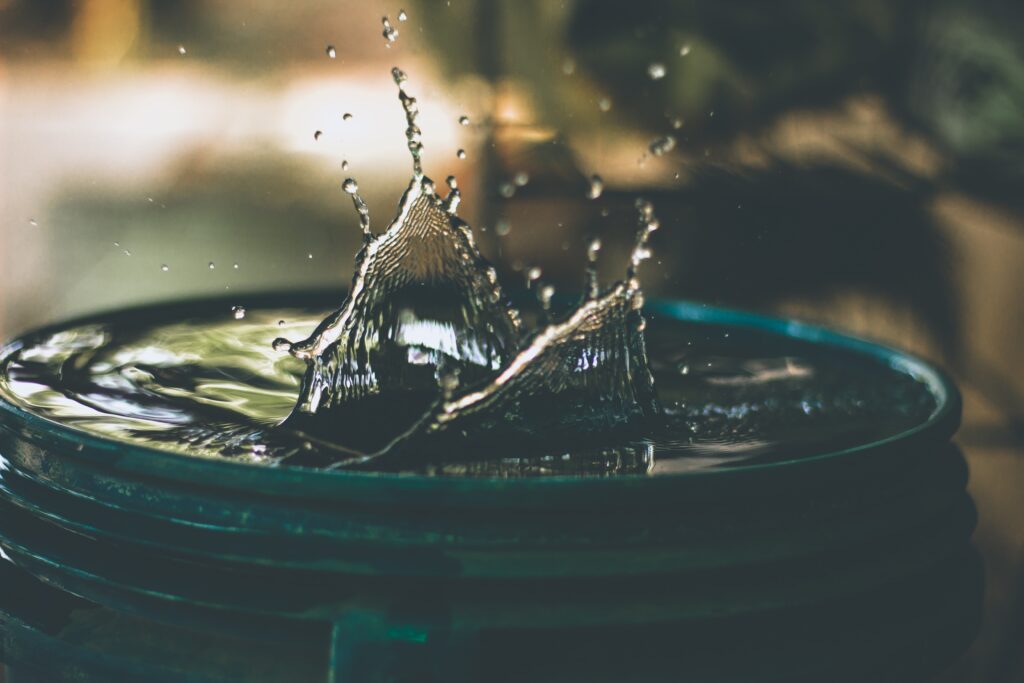In “Water Leak Detection and Repair: A Comprehensive Guide for Homeowners,” we bring you an extensive resource to help you navigate the world of detecting and repairing water leaks in your home. From identifying common signs of leaks to practical tips on how to locate and fix them, this guide is designed to empower homeowners like you in managing and resolving this all-too-common issue. With our friendly and easy-to-understand approach, we provide you with the knowledge and tools you need to protect your home and save money on water bills.



This image is property of images.unsplash.com.
Understanding the Importance of Water Leak Detection
Water leaks may seem like a minor inconvenience, but they can have significant consequences if left unresolved. Understanding the importance of water leak detection is crucial for homeowners to protect their property, avoid unnecessary expenses, and ensure the safety and well-being of their families.
Effects of Neglected Water Leaks
Neglected water leaks can lead to a wide range of damaging effects. From physical damage to your home’s structure to health risks associated with mold and mildew, the consequences of ignoring water leaks can be severe. Moisture buildup from leaks can weaken the foundation, walls, and ceilings, compromising the integrity of your home. Additionally, the growth of mold and mildew can cause allergic reactions and respiratory problems, posing health risks to occupants.
How Water Leaks Affect Your Bills
Water leaks can have a significant impact on your monthly bills. Even a small leak can waste a significant amount of water over time, resulting in higher water bills. By promptly detecting and fixing leaks, you can save water and reduce expenses. Being proactive about water leak detection can help you identify the root causes of leaks and address them promptly, ultimately leading to more manageable utility bills.
The Impact of Water Leaks on Home Value
Water leaks can diminish the value of your home. When potential buyers see signs of water damage or evidence of past leaks, they may be hesitant to make an offer or negotiate a lower price. Addressing water leaks promptly and professionally can help preserve the value of your property and ensure that you get the best possible return on your investment.
Common Causes of Water Leaks at Home
Understanding the common causes of water leaks at home is the first step towards preventing and addressing them effectively. By familiarizing ourselves with these causes, we can be better equipped to take preventive measures and maintain the integrity of our homes.
Faulty Plumbing Systems
Faulty plumbing systems are a common culprit behind water leaks. Aging pipes, loose connections, and worn-out seals can cause leaks to occur. Regular inspections and maintenance of your plumbing system can help identify any potential issues and prevent leaks before they become major problems.
Natural Causes: Rain and Groundwater
During heavy rainfall or periods of high groundwater levels, leaks can occur in basements or crawl spaces. Water seepage through cracks in the foundation or gaps in the walls can cause significant water damage over time. Proper drainage systems and sealing measures can help mitigate the risk of leaks from natural causes.
Damaged Roofs and Walls
Roof leaks can occur due to damaged or missing shingles, deteriorated flashing, or clogged gutters. Over time, water can penetrate through the roof and cause damage to the attic, ceilings, and walls. Regular roof inspections and repairs are essential to prevent leaks and maintain the overall integrity of your home.
Clogged Drains and Sewers
Clogged drains and sewer lines can lead to leaks and backups. When wastewater cannot properly flow through the pipes, it can cause water to overflow and leak into your home. Regular maintenance and proper disposal of waste can help prevent these issues.



This image is property of images.unsplash.com.
Recognizing Signs of Water Leaks
Recognizing the signs of water leaks is crucial for early detection and prompt action. By being aware of these indicators, homeowners can save themselves from potential damage and costly repairs.
Unusual Increase in Water Bills
If you notice a sudden, unexplained increase in your water bills, it could be a sign of a hidden water leak. Comparing your current bills with previous months can help identify any abnormal spikes in water usage, indicating the presence of a leak.
Water Stains and Damp Spots
Water stains or damp spots on walls, floors, or ceilings are clear indicators of a water leak. These stains can range from yellowish discoloration to dark patches, depending on the severity and duration of the leak. Paying attention to any changes in the appearance of your walls or floors is crucial for early detection.
Musty or Moldy Odors
A musty or moldy odor in your home can signal the presence of hidden water leaks. When moisture accumulates in hidden areas like walls or crawl spaces, it creates an environment conducive to mold and mildew growth. If you notice any unusual odors, it is essential to investigate and address the source promptly.
Unexplained Sounds of Running Water
If you hear the sound of running water when no faucets or appliances are in use, it could indicate a concealed water leak. These leaks can be challenging to detect visually, but the persistent sound of running water can serve as an auditory clue. Identifying the location of the leak may require the help of a professional plumber.
DIY Water Leak Detection Techniques
While some water leaks require professional intervention, there are several DIY techniques that homeowners can employ to detect and address minor leaks. These techniques can help homeowners take immediate action and mitigate the damage caused by water leaks.
The Meter Test
The meter test is a simple method to check for leaks in your plumbing system. Start by turning off all water sources in your home, including faucets, showers, and appliances. Locate your water meter and take note of the current reading. Wait for a few hours without using any water and then recheck the meter. If the reading has increased despite no water usage, it is likely that a leak is present.
Using Leak Detection Dye Tablets
Leak detection dye tablets are an easy and effective way to identify toilet leaks. Simply drop a dye tablet in the toilet tank, wait for a few minutes, and then check the bowl. If the water in the bowl has turned colored, it indicates a leak. This method helps homeowners pinpoint the source of the leak and take appropriate measures to rectify the problem.
Performing a Sound Test
Performing a sound test can help identify hidden leaks behind walls or under floors. Turn off all noisy appliances and sources of sound in your home. Stand still and listen for any faint sounds of dripping or running water. By focusing on areas where you suspect a leak might be, you can narrow down the search and take appropriate action.
Detecting Leaks in Pooling Areas
Pooling areas in your yard or near the foundation of your home can indicate underground leaks. If you notice unexplained wet spots or areas where water consistently collects, it is essential to investigate further. Digging a small hole can help you determine if the water is coming from a leaky pipe or a natural source like groundwater.



This image is property of images.unsplash.com.
Professional Water Leak Detection Services
While DIY techniques can be effective for minor leaks, professional water leak detection services are often necessary for more complex or hidden leaks. Trained professionals utilize specialized equipment to identify and locate leaks, ensuring efficient repairs and minimizing the risk of further damage.
Types of Commercial Leak Detection Equipment
Professional leak detection companies utilize various advanced equipment to accurately detect leaks. These include thermal imaging cameras, moisture meters, acoustic listening devices, and high-pressure water systems. Each of these tools serves a specific purpose in locating leaks and assessing the extent of damage.
When to Call a Professional
While DIY techniques can be helpful, certain situations warrant the expertise of a professional. If you are unable to locate the source of a leak, suspect a major leak, or need assistance in repairing and restoring water-damaged areas, it is best to call a professional leak detection service. They have the knowledge and experience to handle complex leaks and ensure that repairs are carried out effectively.
Choosing a Reliable Water Leak Detection Company
When selecting a water leak detection company, it is crucial to choose a reliable and reputable service provider. Look for companies with a proven track record of successful leak detection and repair. Reading customer reviews and seeking recommendations from friends or family can help you make an informed decision. Additionally, ensure that the company’s technicians are licensed and insured to guarantee professional and reliable service.
Addressing Common Leak Sources in the Home
Once a leak is detected, addressing the source promptly is crucial to prevent further damage and costly repairs. Here are some common leak sources in the home and tips for their repair:
Fixing Leaks in Faucets and Showerheads
Leaky faucets and showerheads are common household nuisances that can waste a significant amount of water. To fix a leaky faucet, start by turning off the water supply. Remove the faucet handle and replace the damaged washer or O-ring. Similarly, for leaky showerheads, use plumber’s tape or replace the showerhead altogether.
Repairing Toilet Leaks
Toilet leaks can waste a considerable amount of water if left unaddressed. A common cause of toilet leaks is a faulty flush valve or flapper. If you notice continuous running water in the toilet tank, it is likely that the flapper needs to be replaced. Other components like the fill valve or overflow tube may also require attention.
Dealing with Leaks in Water Heaters
Water heater leaks can range from minor drips to major leaks that require immediate attention. Start by identifying the source of the leak. It could be a loose connection, a faulty valve, or a corroded tank. Depending on the severity of the leak, you may need to tighten connections, replace valves, or contact a professional plumber for further repairs or replacement.
Addressing Leaks in Washing Machines
Leaking washing machines can cause water damage to floors and nearby areas. Inspect the hoses connecting the washing machine to the water supply and look for any visible signs of damage or leakage. Tighten or replace faulty hoses to prevent further leaks. It is also advisable to check the washing machine’s internal components, such as the pump and valves, for any signs of leaks or malfunction.
Major Leak Repairs: Hiring a Professional
While minor leaks may be manageable by homeowners, major leaks require professional intervention. Identifying major leaks and hiring a qualified plumber are crucial steps in resolving these issues effectively.
Identifying Major Leaks that Require Professional Intervention
Major leaks can cause significant damage and often require immediate attention from professionals. Signs of major leaks include large amounts of water pooling, burst pipes, or extensive water damage to walls, ceilings, or floors. In such cases, it is essential to turn off the main water supply and contact a professional plumber to assess the situation.
Hiring a Plumber: Key Factors to Consider
When hiring a plumber for major leak repairs, several key factors should be considered. Look for licensed and insured professionals with experience in handling major leak repairs. Check for references or reviews from previous customers to ensure their reliability. Additionally, consider the plumber’s response time and availability, especially during emergency situations.
Understanding the Repair Process
The repair process for major leaks involves several steps to ensure the issue is resolved and any damage is mitigated. After identifying the source of the leak, the plumber will assess the extent of the damage and develop a repair plan. This may involve replacing or repairing damaged pipes, removing water-damaged materials, and restoring or reconstructing affected areas. The repair process may also include addressing any underlying causes of the leak, such as faulty plumbing systems or inadequate insulation.
Water Leak Prevention Measures
Taking preventive measures is essential to minimize the risk of water leaks and protect your home from potential damage. By implementing these preventive measures, homeowners can ensure the long-term integrity of their property.
Regular Plumbing Maintenance
Regular plumbing maintenance is crucial for preventing water leaks. Schedule periodic inspections by a professional plumber to identify any potential issues before they escalate. This includes checking for leaks, inspecting pipes for corrosion or damage, and ensuring proper functioning of valves and connectors.
Proper Insulation of Pipes
Insulating pipes is an effective way to prevent leaks, especially during colder months. Insulation helps protect pipes from freezing, expanding, and potentially bursting. Insulate both hot and cold water pipes in unheated areas such as basements, crawl spaces, and attics to minimize the risk of leaks.
Knowing Your Home’s Water Main Location
Knowing the location of your home’s water main can help you quickly shut off the water supply in case of a major leak. Familiarize yourself with the location and functioning of the main shut-off valve to prevent extensive water damage during emergencies.
Investing in Water Leak Detection Systems
Installing water leak detection systems provides an added layer of protection against leaks. These systems use sensors or automatic shut-off valves to detect leaks and immediately cut off the water supply. Investing in such systems can provide peace of mind and help prevent costly damage caused by water leaks.
Emergency Preparedness for Water Leaks
Despite taking preventive measures, emergencies can still occur. Being prepared for water leaks is essential to minimize the damage and ensure the safety of your home and family.
Creating a Response Plan for Major Water Leaks
Creating a response plan for major water leaks can help you and your family act quickly and effectively. The plan should include steps such as locating the main shut-off valve, contacting professional plumbers, and temporarily halting the water supply using shut-off valves in individual fixtures. Consider having emergency contact information readily available and familiarize yourself with the process of shutting off utilities in case of a severe leak.
Safeguarding Valuable Items
To protect your belongings from water damage, it is important to store valuable items away from areas prone to leaks. Consider using protective covers for electronics, documents, and other irreplaceable items. Additionally, avoid storing items in basements or areas susceptible to flooding.
Safety Measures During Flooding
In the event of flooding caused by a severe leak or natural calamity, safety should be the primary concern. If flooding is significant and poses a risk to your safety or the structural integrity of your home, evacuate immediately. Avoid contact with standing water, as it may carry electrical current or contain harmful contaminants. Wait for professional assistance before reentering your home and assessing the damage.
Long-Term Impact of Water Leaks
Understanding the long-term impact of water leaks underscores the importance of prompt detection and repair. Failure to address water leaks can result in significant long-term consequences for your home and health.
Structural Damage to Your Home
Water leaks can cause significant structural damage to your home over time. Moisture accumulation weakens the foundation, walls, and ceilings, compromising the integrity of the entire structure. This can lead to expensive repairs and even render your home uninhabitable if left unaddressed for an extended period.
Long-Term Health Risks of Mold and Mildew
The growth of mold and mildew resulting from water leaks poses long-term health risks. Exposure to mold spores can trigger allergic reactions, respiratory problems, and even more severe health issues. Individuals with pre-existing respiratory conditions are particularly vulnerable. Prompt detection and remediation of water leaks are crucial to prevent the growth and spread of mold and safeguard the health of occupants.
Potential Increase in Home Insurance Rates
Water damage caused by neglected leaks can result in an increase in home insurance rates. Insurance companies consider water damage claims as indicators of increased risk. By promptly addressing water leaks, homeowners can minimize the risk of water damage claims and potential rate hikes. Additionally, regular maintenance and preventive measures can demonstrate to insurers that you are proactive in minimizing risks.
In conclusion, understanding the importance of water leak detection is vital for homeowners to protect their property, finances, and well-being. By recognizing the signs of leaks, implementing preventive measures, and promptly addressing issues, homeowners can maintain the integrity of their homes, prevent costly repairs, and ensure a safe and healthy living environment for themselves and their families. Remember, proactive leak detection and repair are key to avoiding the destructive consequences of water leaks.
